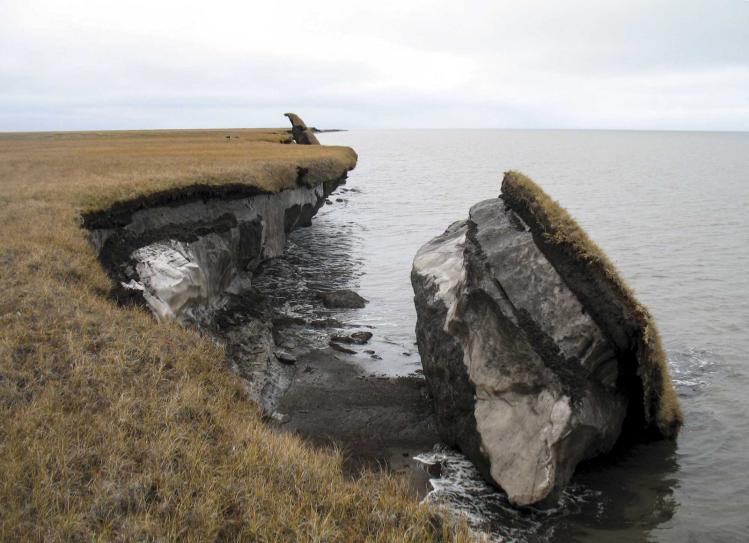
Last weekend, the Wall Street Journal opinion section published “Your Complete Guide to the Climate Debate” by Matt Ridley and Benny Peiser. The authors foresee that the United Nations Conference on Climate Change opening today in Paris will end in one more toothless agreement—and they are not at all unhappy about that.
Ridley is a frequent contributor to the Wall Street Journal. A very successful science writer, blogger, and market enthusiast, he is also a Viscount and Conservative member of the British House of Lords. In identifying him, the Journal always notes that “he has an interest in coal mining on his family lands.” Peiser, a social anthropologist interested in climate change “catastrophism,” directs something called the Global Warming Policy Forum.
As a pessimistic student of politics, I fear that their negative appraisal of the Paris conference may prove accurate. But as a total non-student of climate science, I am in need of help. Little in the backgrounds and apparent ideological commitments of these writers leads me to give their arguments the benefit of the doubt. But should I simply dismiss them?
Go online, I tell myself, and just enter in the authors’ names, the Wall Street Journal, and the name and date of the article. Within a day or two, substantial critiques will pop up.
No such luck.
I entertain two hypotheses. Because my online skills are weak (that’s not a hypothesis, it’s a fact), the substantial critiques are there but lurking out of my sight or the sight of anyone similarly unskilled. Alternatively, those worried about global warming just don’t consider these people—or the reach of the Wall Street Journal!—serious enough to mount a response.
Either hypothesis raises questions about how we conduct a rational debate about a subject of great importance but demanding some degree of evaluating claims to expertise.
Here are some of the claims that Ridley and Peiser make. My instinct is to reject them, at least many of them. But I need help.
Please respond to any one or two or all of the claims. Responses consisting solely of links will be deleted. Responses that provide links but also summarize them are fine.
1. World temperatures “have gone up only very slowly, less than half as fast as the scientific consensus predicted in 1990, when the global-warming scare began in earnest.”
2. “It is increasingly clear that the planet was significantly warmer than today several times during the last 100,000 years.”
3. “On a global scale, as scientists keep confirming, there has been no increase in frequency or intensity of storms, floods or droughts, while deaths attributable to such natural disasters have never been lower.”
4. “Arctic sea ice has recently melted more in summer than it used to in the 1980s, but Antarctic ice has increased, and Antarctica is gaining land-based ice, according to a new study by NASA scientists.”
5. “Sea level continues its centuries-long slow rise—about a foot a century—with no sign of recent acceleration.”
6. Regarding predictions for future warming, “we are often told by journalists that the science is “settled” and there is no debate. But scientists …. say there is great uncertainty. … Their fifth and latest assessment for the United Nations Intergovernmental Panel on Climate Change … projects that temperatures are likely to be anywhere from … 2.7 to 8.1 degrees Fahrenheit … warmer by the latter part of the century—that is, anything from mildly beneficial to significantly harmful.”
7. “A new study by a leading climate economist, Richard Tol, from the University of Sussex, concludes that warming may bring gains.”
8. According to Tol, “a century of climate change is about as good/bad for welfare as a year of economic growth. Statements that climate change is the biggest problem of humankind are unfounded.”
9. “The latest science on the ‘sensitivity’ of the world’s temperature to a doubling of carbon dioxide levels … conclude[s] that this key measure is much lower—30%-50% lower—than the climate models are generally assuming. … When politicians intone that, despite the slow warming so far, ‘two degrees’ of warming is inevitable and imminent, remember that they are using high estimates of climate sensitivity.”
10. “If there is even a tiny chance of catastrophe,” isn’t it “better to decarbonize … than to continue using fossil fuels and regret it”? … But “there is no energy technology remotely ready to take over from fossil fuels…. Solar power is cheaper than it was. but …. the land, infrastructure, maintenance and backup power …. still make it more expensive than gas-fired electricity. Solar provides about 0.5% of the energy generated world-wide. Wind has expanded enormously, but at massive cost, yet it supplies a little more than 1% …. Nuclear is in slow retreat.”
11. “Meanwhile, there are a billion people with no grid electricity whose lives could be radically improved … with the access to the concentrated power of coal, gas or oil that the rich world enjoys. … climate policy is hurting the poor.”
Where do these writers go wrong? Many dotCommonwealers can speak to these claims—and with specific rebuttals. Go for it!